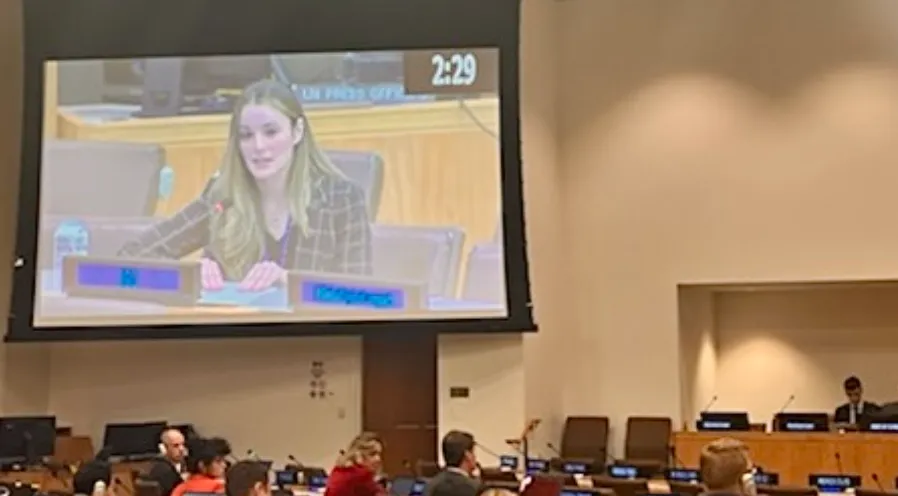Statement by International IDEA at the UN Global Digital Compact Informal Consultations

'Global Digital Compact'
Third informal consultation
10 February 2023
New York, United Nations Headquarters
Statement by
Kevin Casas-Zamora
Secretary-General
International Institute for Democracy and Electoral Assistance (International IDEA)
Excellencies,
International IDEA is the only intergovernmental organization with an exclusive mandate on democracy and electoral assistance. We have been providing support to country-led political reforms for 28 years. In recent years, we have closely followed the increasing impact of digitalization on democracy and human rights. We thank the UN General Assembly for the opportunity to provide inputs to this consultative process.
On the basis of consultations with the stakeholders with whom we work globally, including our 34 Member States, International IDEA would like to bring four points to the attention of this body:
First, digital technologies have become a key infrastructure to enable human activity. For human beings to have the capacity to live the life they deem valuable, permanent access to digital technologies is increasingly becoming a pre-requisite. The exercise of the rights enshrined in the International Covenant on Civil and Political Rights, including freedom of expression, of assembly, and of the press, is visibly impacted by access to digital technologies. So is the full enjoyment of social, cultural, and economic rights.
Any Global Digital Compact should consider access to digital technologies—and particularly the Internet—as an entitlement for all human beings. International IDEA therefore underlines the importance of connecting all people to the Internet as a critical step towards SDG10.
Second, Internet connectivity should be protected as a global public good. Abrupt Internet shutdowns and the disconnection of online services and links between countries, usually perpetrated by authoritarian governments, are an attack on democracy and human development. They are also assaults on the global peace that this organization is committed to preserving. In a world that appears to be on a track towards more divisions between countries, maintaining Internet connectivity will become essential to bridge these gaps.
We therefore stress the importance of commitments by all countries to maintain global connectivity and avoid internet fragmentation.
Third, building a digital compact means working with public as much as private actors, including businesses, to enhance the benefits and mitigate the risks of digitalization for democracy and human development. Regulation is a critical part of the solution, but there is a deeper business case for the digital technology sector to engage, out of its own accord, in the defence of democracy and human rights.
Many digital technologies are themselves products of democracy and democratic values like freedom of speech. By allowing digital platforms to undermine democracy and propagate authoritarian values, some corporate actors are sawing off the branch they are sitting on and embracing a cynical vision of their business untethered to the values, like openness and tolerance, that they profess to be committed to. For the digital industry, actively defending democracy should be seen as an existential issue. Any global digital compact should work with digital firms, but also hold them to account for the value they claim to profess.
Fourth, Artificial Intelligence (AI) should be regulated in ways that preserve the self-determination and moral agency of human beings, which is what democracy and human rights intend to protect. Transparency of data sources and uses, as well as of algorithms, must be mandated to the greatest extent possible. And ultimate human control over and accountability for fundamental collective decisions—particularly in the political and military realms—should the preserved at all costs. Mitigating the risks of runaway AI, while leveraging its exceptional opportunities for wellbeing, offers the most promising arena for international cooperation. Unrestrained competition to develop AI, conversely, harbours risk not simply for democracy, human rights, and human development, but for the future of our species. International IDEA hence urges all countries to engage in meaningful collaboration around the regulation of Artificial Intelligence.
Thank you.